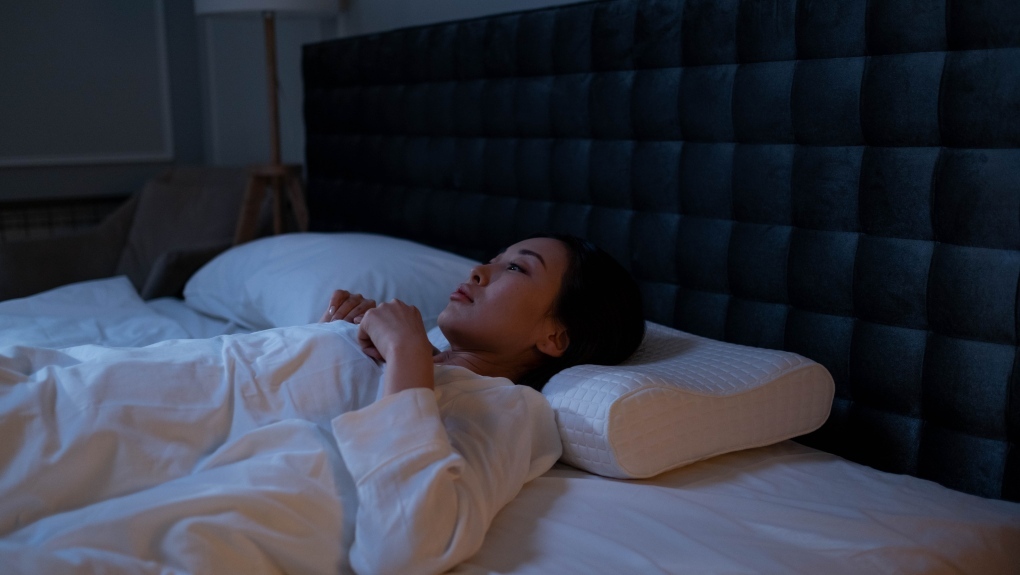A new study using 25 years of data has found that getting just five hours or less of sleep per night is associated with a higher likelihood of being diagnosed with multiple chronic diseases.
The study, which looked at the sleep duration of more than 7,000 participants aged 50, 60 and 70, was published Tuesday in the journal PLOS Medicine.
Those who reported that they slept five hours or less regularly by age 50 were 40 percent more likely to have been diagnosed with two or more chronic diseases in the past 25 years than those who slept about seven hours a day slept at night, the study found.
Severine Sabia, of University College London’s Institute of Epidemiology & Health and lead author of the study, said in a press release that “as people age, their sleeping habits and sleep patterns change”.
But it’s still recommended to get seven to eight hours of sleep every night, regardless of age.
Previous research has shown that sleep durations above or below this recommended level can be linked to individual chronic diseases, Sabia noted.
A separate US study published last week found that people who slept less than seven hours had a higher prevalence of risk factors for heart disease and that poor sleep is common among Americans.
Sabia and her team wanted to investigate whether there was a link between less sleep and the risk of developing several chronic conditions, and researchers say they found just that.
“Our results show that short sleep duration is also associated with multimorbidity,” said Sabia.
Multimorbidity simply means the simultaneous occurrence of two or more chronic diseases. It’s something that becomes more likely with age, but researchers have expressed concern as it appears to be on the rise in some regions.
“Multimorbidity is on the rise in high-income countries, and more than half of older adults now have at least two chronic diseases,” Sabia said. “This is proving to be a major public health challenge, as multimorbidity is associated with high utilization of health services, hospitalization and disability.”
For this study, researchers examined data from the Whitehall II cohort study, a database of more than 10,000 people employed in the London offices of the UK Civil Service when the data collection phase began in 1985.
Participants then signed up for follow-up visits to track their health as they got older.
Between 1985 and 2016, they self-reported how long they slept about six times. The researchers looked at this data and isolated sleep duration data from participants aged 50, 60 and 70, covering a total of about 7,000 participants.
They then examined whether these participants had chronic diseases and, if so, when they developed.
Her definition of chronic disease included diabetes, cancer, coronary artery disease, stroke, heart failure, chronic kidney disease, liver disease, depression, dementia, Parkinson’s disease, chronic obstructive pulmonary disease, and arthritis.
Supporting previous research on risk of individual chronic diseases, sleeping five hours or less by age 50 was associated with a 20 percent risk of being diagnosed with a single chronic disease compared to those who achieved the recommended hours.
They found that those who reported that they regularly slept five hours or less in their 50s, 60s, and 70s had a 30 to 40 percent increased risk of multiple morbidity compared to those who slept about seven hours a night .
They also found that those who reported getting five hours of sleep by age 50 were 25 percent more likely to die later during the 25-year follow-up period — an association that could potentially have to do with the increased risk of chronic disease for be responsible for mortality, the researchers explained.
But does sleeping longer than recommended have any associations with chronic disease?
According to research, it could be when we hit our 60s and 70s, but maybe not before.
When the researchers looked at whether sleeping nine hours or more had negative health effects, there was an association between the onset of multimorbidity in people’s 60s and 70s.
However, they found no clear association between increased sleep duration at age 50 in healthy people and multimorbidity.
If participants already had a chronic disease by age 50, late sleepers had a 35 percent increased risk of developing another disease, possibly due to underlying health conditions, researchers suggest.
Jo Whitmore, a senior cardiac nurse at the British Heart Foundation who was not involved with the research, said in the press release: “Adequate sleep allows your body to rest.
“There are a variety of other ways that poor sleep can increase your risk of heart disease or stroke, including through increased inflammation and increased blood pressure,” she added.
“This research adds to a growing body of research highlighting the importance of a good night’s sleep.”
Sabia said that a good night’s sleep “requires good sleep hygiene, such as making sure the bedroom is quiet, dark, and a comfortable temperature before bed.”
“It is also recommended to remove electronic devices and avoid large meals before bedtime. Physical activity and exposure to light during the day can also promote a good night’s sleep.”
#Sleeping #hours #night #puts #risk #chronic #diseases #study


Leave a Comment